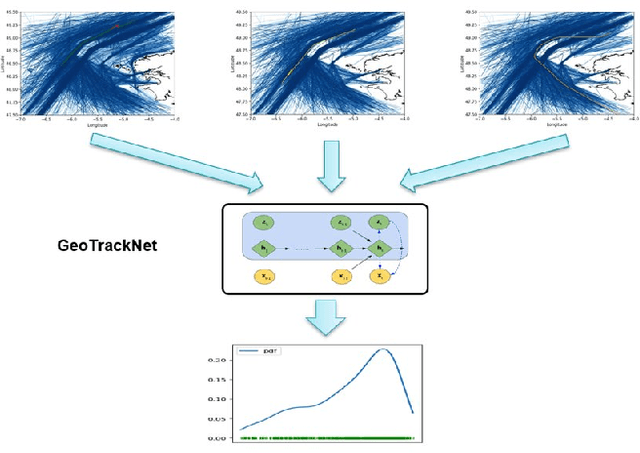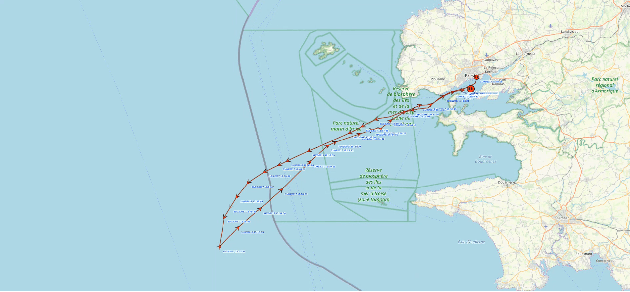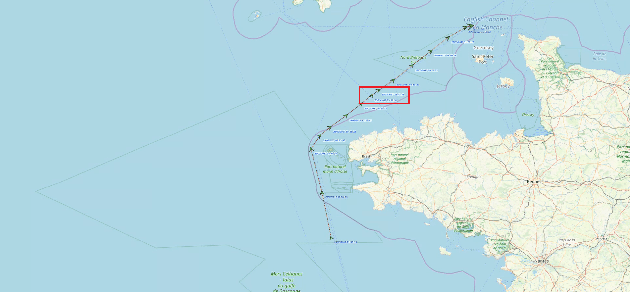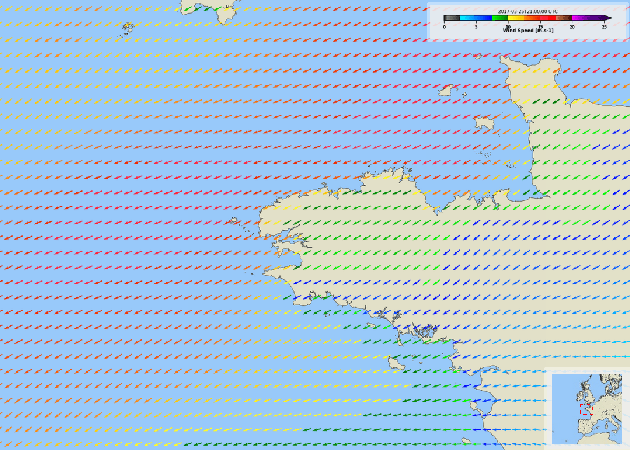Guillaume Hajduch
Detection of Abnormal Vessel Behaviours from AIS data using GeoTrackNet: from the Laboratory to the Ocean
Aug 12, 2020



Abstract:The constant growth of maritime traffic leads to the need of automatic anomaly detection, which has been attracting great research attention. Information provided by AIS (Automatic Identification System) data, together with recent outstanding progresses of deep learning, make vessel monitoring using neural networks (NNs) a very promising approach. This paper analyses a novel neural network we have recently introduced -- GeoTrackNet -- regarding operational contexts. Especially, we aim to evaluate (i) the relevance of the abnormal behaviours detected by GeoTrackNet with respect to expert interpretations, (ii) the extent to which GeoTrackNet may process AIS data streams in real time. We report experiments showing the high potential to meet operational levels of the model.
GeoTrackNet-A Maritime Anomaly Detector using Probabilistic Neural Network Representation of AIS Tracks and A Contrario Detection
Dec 02, 2019



Abstract:Representing maritime traffic patterns and detecting anomalies from them are key to vessel monitoring and maritime situational awareness. We propose a novel approach-referred to as GeoTrackNet-for maritime anomaly detection from AIS data streams. Our model exploits state-of-the-art neural network schemes to learn a probabilistic representation of AIS tracks, then uses a contrario detection to detect abnormal events. The neural network helps us capture complex and heterogeneous patterns in vessels' behaviors, while the a contrario detection takes into account the fact that the learned distribution may be location-dependent. Experiments on a real AIS dataset comprising more than 4.2 million AIS messages demonstrate the relevance of the proposed method. Keywords: AIS, maritime surveillance, deep learning, anomaly detection, variational recurrent neural networks, a contrario detection.
A Multi-task Deep Learning Architecture for Maritime Surveillance using AIS Data Streams
Aug 07, 2018



Abstract:In a world of global trading, maritime safety, security and efficiency are crucial issues. We propose a multi-task deep learning framework for vessel monitoring using Automatic Identification System (AIS) data streams. We combine recurrent neural networks with latent variable modeling and an embedding of AIS messages to a new representation space to jointly address key issues to be dealt with when considering AIS data streams: massive amount of streaming data, noisy data and irregular timesampling. We demonstrate the relevance of the proposed deep learning framework on real AIS datasets for a three-task setting, namely trajectory reconstruction, anomaly detection and vessel type identification.
 Add to Chrome
Add to Chrome Add to Firefox
Add to Firefox Add to Edge
Add to Edge